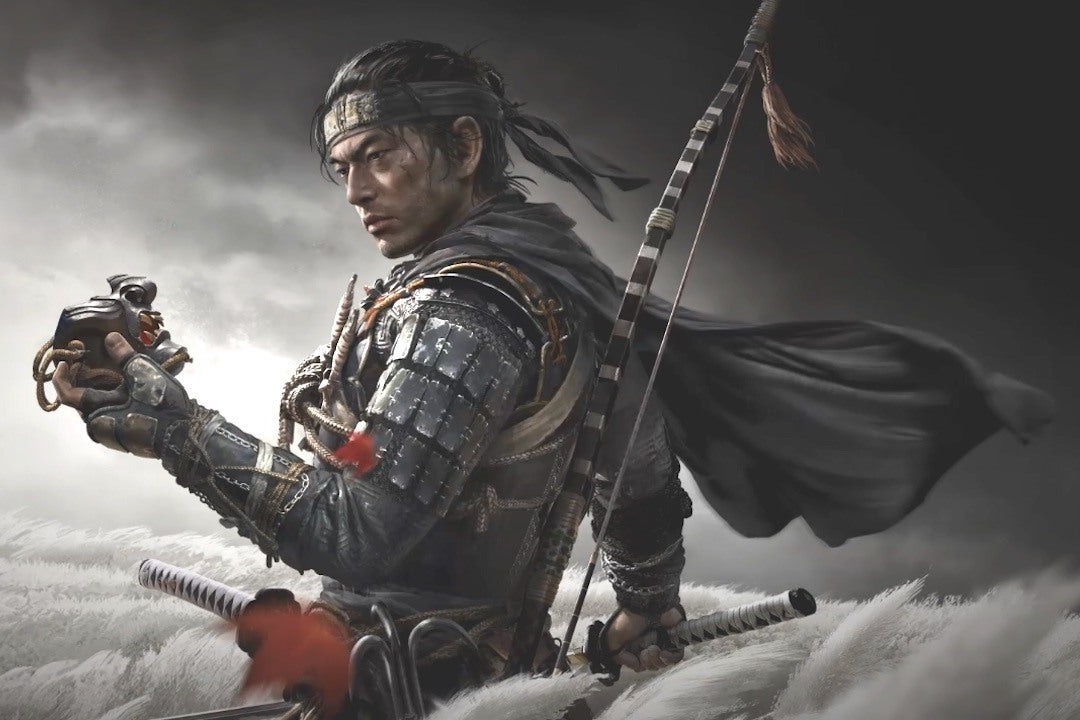With the current console generation in its final days, much of the hype within the gaming industry is understandably centered around titles coming out for the PlayStation 5 and Xbox Series X. But just as the PS3 and Xbox 360 went out with a bang, the consoles of today still have some tricks up their sleeves as well.
For Sony, that last hurrah may very well come in the form of Ghost of Tsushima, the final PlayStation exclusive in a generation that was dominated by them. Outside of multiplatform titles like Cyberpunk 2077, the July 17 release following a Japanese warrior in the 13th century marks what is likely the last major game for the PS4.
Of course, no battle against the Mongol empire would be complete without an appropriate soundtrack, and the developers at Sucker Punch Productions weren’t about to spare any expense in making it authentic. That’s why they hired award-winning film and TV composer Ilan Eshkeri — whose only previous published video game work was on The Sims 4 — to delve deep into the sounds of Japanese history and craft an elaborate soundtrack.
SPIN caught up with the esteemed British composer to discuss the long journey that went into scoring Ghost of Tsushima.
SPIN: Now that Ghost of Tsushima is finally releasing, how does it feel to know that people will be able to finally hear your soundtrack and check out the game?
Ilan Eshkeri: I’m really excited for it because it’s been a long time, but I also finished my work on it quite a few months ago. It’s a bit weird because there’s been this gap in which I’ve been focused on other things — like doing the next David Attenborough Planet Earth project — so it’s kind of strange to be thrust back into the world of Ghost. But it’s also very exciting because the whole project was a joy for me. As my career has developed and I’ve become able to choose what projects I want to do, I’ve become much more selective in what I do and who I want to work with. The Sony PlayStation team and the guys at Sucker Punch have just been a joy to work with, and when that happens, it allows for you to do your best work.
When you were first approached about working on Ghost of Tsushima, was a game like this something you knew you wanted to do, or was there any doubt about it?
I was a little hesitant to do it at the start because I don’t want to do a big beat-em-up sword fighting kind of a game, and I thought “If that’s what this is, then I don’t want to do it.” The Sucker Punch guys spent a long time talking me through the whole narrative journey of the game, and I was just blown away. It’s such a powerful, emotional, and beautiful story — and of course, there’s a lot of fighting in it, but at its core, it’s about someone who goes on this intense emotional journey. It’s about a man who’s been trained his whole life with this strict moral code, but to save the people he loves, he has to go against that. There’s this tremendous emotional tension throughout the game, and that tension really inspired me.
Having created soundtracks for dozens of films and TV shows over the last two decades, how different was a project like this?
[Video games] have always been a fascination for me, and I’ve always wanted to do more of them, because really what knits my career together is a love of narrative and storytelling through music. I’ve written ballets, shows, songs, and all kinds of different things, and — in respect to the narrative — a game like this is no different. It’s driven by an emotional narrative, and music is all about emotional storytelling. But for the technical requirements, you can’t just think in regards to a timeline when you’re writing game music, like “The music starts here, it goes on this journey, and it ends here.” You have to think in terms of vertical depth, because you may have the same piece of music, but depending on what’s happening on the screen, it might be more intense or less intense. It’s almost like a three-dimensional way of thinking about the music, and you need to be aware of that both creatively and technically.
Seeing as authenticity is one of the game’s major points, what was it like to immerse yourself in Japanese history in order to bring an authentic soundtrack to the game?
I’m a bit of a nerd like that, so I love this kind of stuff with learning and reading — and I love Japanese culture. For 10 years, I trained in the Japanese martial art Aikido — although I haven’t done it in many years, so I can’t remember any of it — and I trained in a very strict dojo where we spoke in Japanese when we were training. There’s always been something about Japanese culture that’s very enjoyable to me, so I always wanted to go to Japan. This project afforded me that opportunity in order to record some taiko players and other Japanese percussionists, which was just brilliant. I feel like learning about all of this stuff enriches me artistically and musically, and it informs other creative processes in ways that you can’t imagine in the future.




